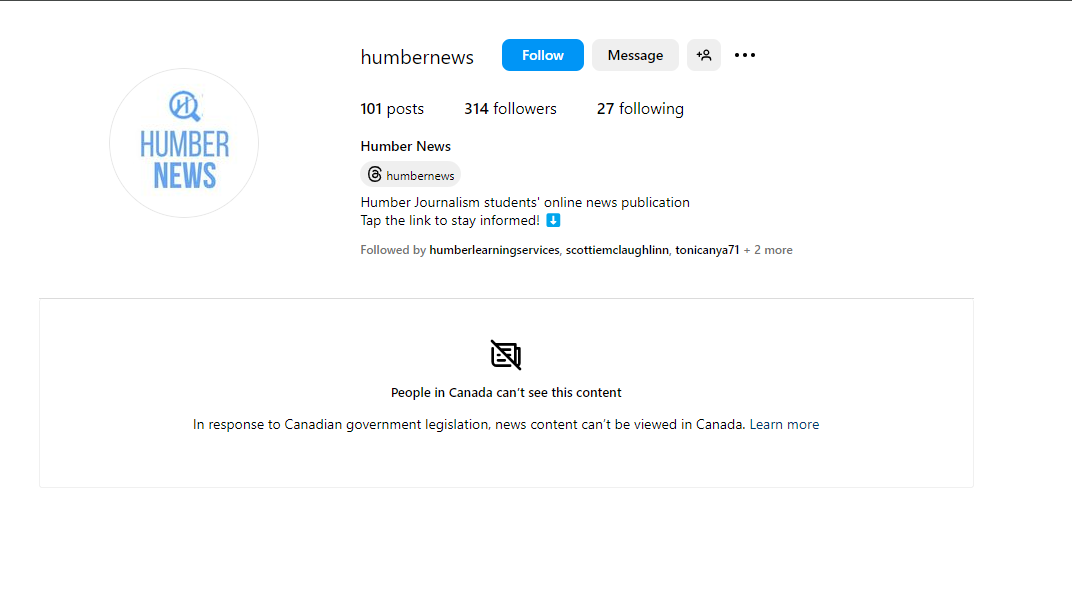Bill C-18 has diminished exposure to political information, keeping younger Canadians uninformed and threatening Canadian democracy.
Meta, Facebook and Instagram’s parent company, no longer supports Canadian news on their platforms in retaliation for Bill C-18, which regulates digital news intermediaries.
This is a problem as 85 per cent of Canadians aged 18-24 said they use social media as their primary source for news, according to a 2023 Maru poll.
Limiting the younger generations of Canadians from receiving news on social media can cause a host of issues, including a lack of political knowledge.
In his final speech in the House of Commons in 2023, former Conservative leader Erin O’Toole said social media is one of the biggest threats to Canadian politics.
“Social media did not build this great country, but it is starting to tear its democracy down,” O’Toole said.
“If we are not careful, there will soon be a generation of young voters who have never even heard a point of view different from their own. I fear that ignorance of the views of others will slowly transform into a dislike of others and we can see that starting to happen,” he said.
Keeping the next generation of Canadians uninformed on social and political issues will hurt the nation’s democratic system in the future.
According to a 2020 Elections Canada report, only 12 per cent of people aged 18-22 are very interested in politics, compared to 28 per cent of those aged 35 and up.
Even more alarming, the report said, “roughly 25 per cent of Canadians aged 16 to 22 report that they never check the news, and close to half of them only do so once or twice a week.”
There was already a deteriorating interest in politics amongst the younger generation and the implementation of Bill C-18 further exacerbates this.
Unifor, Canada’s largest private sector union which represents thousands of journalists, said in a statement that Bill C-18 is a step in the right direction for local news and journalism in Canada.
“This is something Unifor members have fought hard for and now we need to make sure it works,” Unifor National President Lana Payne said in the statement.
The problem is it’s not working.
Some of the most prevalently used social media networks are no longer able to post news-related content, which also removes any unbiased political information.
Political parties and their members are able to promote themselves however they want on the platforms, leaving many who do not consult news sources elsewhere open to unbiased information.
Along with being blocked by Bill C-18, Canadians must also contend with social media algorithms on networks unaffected by the bill.
Social media algorithms are developed to flood a user’s feed with content that would interest them or give the user a reaction according to Sprout Social, a social media management company.
The problem with continuously pushing the same content onto a user’s feed is their network becomes a one-perspective source of information.
With young Canadians receiving most of their news from social media that is stifled by algorithms and controversial legislation, the outlook for varying political perspectives looks bleak.
Social media is supposed to be a tool to spread knowledge but it does more harm than good if the information fails to educate young Canadians on the problems which matter most.

